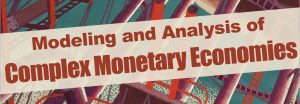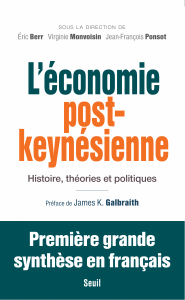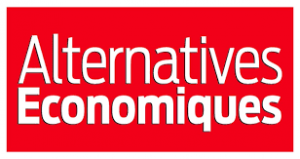
Le coronavirus, révélateur des inégalités territoriales françaises
La monnaie dans les nouveaux programmes de 1re : simplifications, fables et confusions à l’ère de la post-vérité
11 novembre 2019
Mickael Lainé et Jonathan Marie
Expiré : 2019/04/16 – 16 avril – Seizième séance de l’atelier d’éco-po avec Luc Elie (CEPN – Université Paris 13)
La prochaine séance du séminaire “Atelier d’économie politique du CEPN” aura lieu le mardi 16 avril de 12h30 à 14h en salle K301.
Nous recevrons à cette occasion Luc Elie (CEPN – Université Paris 13) qui présentera son article “Mechanisms explaining the impact of economic inequality on environmental deterioration” co-écrit avec Alexandre Berthe.
Vous pouvez retrouver le programme du séminaire pour le second semestre ici.
Comme à l’accoutumée, des sandwichs, fruits …[Lire la suite]
Expiré : 2018/12/14 – 14 décembre – Workshop Modelling and analysis of complex monetary economies V (MACME 5)

The MACME project develops alternative economic models to the ones used by the dominant economic theory, of which the “dynamic stochastic general equilibrium” (DSGE).
Understanding and predicting economic dynamics require that the complexity of modern monetary economies is considered. Within the MACME project, we build rich and innovative agent-based and/or stock-flow consistent models, able to account for a large number of phenomena and in which crises can be endogenous and history matters.
The team organizes an …[Lire la suite]
L’économie post-keynésienne – Histoire, théories et politiques
Sous la direction de Eric Berr (U. de Grenoble), Virginie Monvoisin (Genoble Ecole de Management) et Jean-François Ponsot (U. de Grenoble-Alpes)

L’économie post-keynésienne – Histoire, théories et politiques
Sous la direction de Eric Berr (U. de Grenoble), Virginie Monvoisin (Genoble Ecole de Management) et Jean-François Ponsot (U. de Grenoble-Alpes)
Seuil, 2018, 480 pages, 24,9€
De nombreux contributeurs sont membres du CEPN :
Marc Lavoie (et Jean-François Ponsot) – Chapitre 6. Les courants et fondements théoriques de l’analyse post-keynésienne
Jonathan Marie (et Sébastien Charles) – Chapitre 10. L’inflation comme …[Lire la suite]
Expiré : 2017/11/24 – 24 novembre – Workshop MACME 4

Le quatrième workshop MACME (Modeling and Analysis of Complex Monetary Economies) se tiendra le vendredi 24 novembre 2017, à l’Auditorium de la Maison des sciences de l’Homme de Paris Nord.
Au programme : Gérard Ballot, Federico Bassi, Antoine Godin, Maxime Gueuder, Jean-Daniel Kant, Dany Lang, Marc Lavoie, André Lorentz, Italo Pedrosa, Maria Roubtsova, Andrea Roventini, Pascal Seppecher, Oliver Williams.
Working Paper n°2017-07 – Stabilizing an Unstable Complex Economy – On the limitations of simple rules
Auteurs
Isabelle Salle, Utrecht School of Economics, Utrecht University, NL
i.l.salle@uu.nl
Pascal Seppecher, CEPN, UMR-CNRS 7234, Université Paris 13, Sorbonne Paris Cité
pascal.seppecher@univ-paris13.fr
Abstract
This paper analyzes a range of alternative specifications of the interest rate policy rule within a macroeconomic, stock-flow consistent, agent-based model. In this model, firms’ leverage strategies evolve under the selection pressure of market competition. The resulting process of collective adaptation generates endogenous booms and busts along credit cycles. …[Lire la suite]
Working Paper n°2017-03 – What drives markups? Evolutionary pricing in an agent-based stock-flow consistent macroeconomic model – Pascal Seppecher (CEPN) Isabelle Salle (Utrecht University) et Marc Lavoie (CEPN)
This paper studies coordination between firms in a multi-sectoral macroeconomic model with endogenous business cycles. Firms are both in competition and interdependent, and set their prices with a markup over unit costs. Markups are heterogeneous and evolve under market pressure. We observe a systematic coordination within firms in each sector, and between each sector. The resulting pattern of relative prices are consistent with the labor theory of value. Those emerging features are robust to technology shocks.
Keywords: …[Lire la suite]
